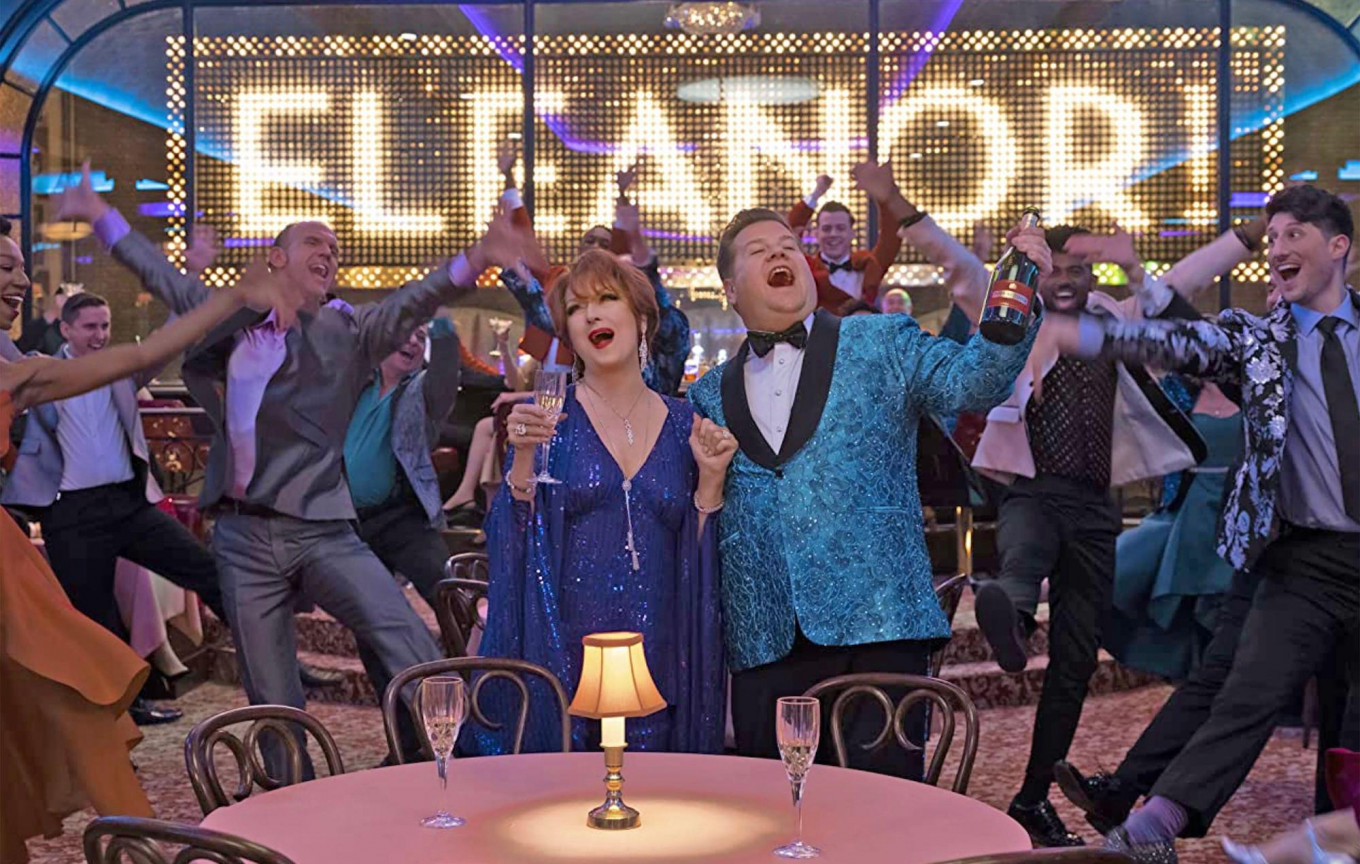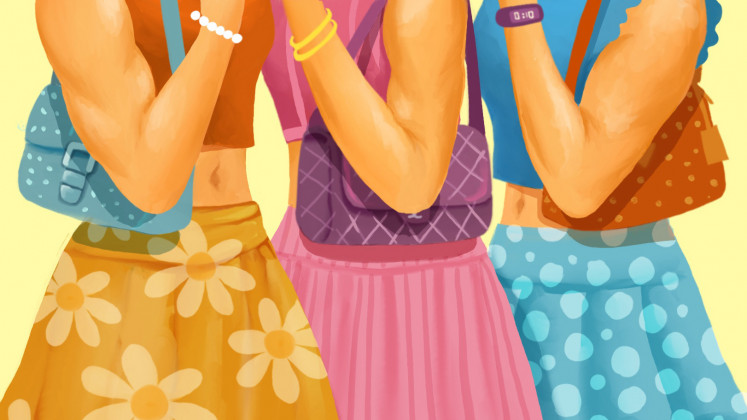Popular Reads
Top Results
Can't find what you're looking for?
View all search resultsPopular Reads
Top Results
Can't find what you're looking for?
View all search resultsNetflix’s 'The Prom' sings its way into classist bias trap
It had all the ingredients for breaking new (Hollywood) ground in sexual representation, but the movie adaptation of The Prom simply doesn't make the grade.
Change text size
Gift Premium Articles
to Anyone
A
s much as it was intended to be a feel-good, queer-approved musical movie, Ryan Murphy’s The Prom fails to deliver, meeting with lukewarm reviews upon its early December release on Netflix.
Notwithstanding the director’s previous commercial success with TV series Glee (2009-2015) and the star-studded cast led by A-listers Meryl Streep and Nicole Kidman, the adaptation is a disappointment compared to the critically acclaimed Broadway musical it is based on.
The Prom follows four washed-out Broadway actors who journey to a conservative town in Indiana to rally behind Emma, a lesbian student who is denied her rights when her school prohibits her from attending the senior prom with her girlfriend.
The cast also features late-night talk show host James Corden and Tony-winner Andrew Rannells in leading roles. Newcomer Jo Ellen Pellman is Emma and Broadway actress Ariana DeBose is her girlfriend, while Kerry Washington and Keegan-Michael Key star in supporting roles.
During the The Prom’s global press conference in November, director-producer Murphy admitted that the movie adaptation was his way of paying tribute to his inner teenager. Just like Emma, he said, he was not allowed to go to his high school prom because of his sexual orientation.
“[…] Halfway through the musical, I realized that was my experience, I'm from Indiana and I was not allowed to go to my prom. So it was … became a very personal thing for me,” Murphy said, recalling the first time he watched the Broadway musical before immediately deciding to adapt it into a movie.
His choice of revenge, however, is a script that unfortunately falls miserably into the trap of “the New Yorker knows better” classist bias, with the Big Apple has-beens presented as saviors of backwards, narrow-minded townies.
Only 10 minutes into the film, the four lead characters burst into a song-and-dance scene, just after a drunken discussion over which social injustice issue they can jump on to fix their tarnished image: “We’re going down to where the necks are red and lack of dentistry thrives”.
More telling are the lyrics below led by Corden’s character, which does no better at hiding their ingrained biases:
“We’re gonna teach them to be more P.C. the minute our group arrives. Those fist-pumping, Bible-thumping, Spam-eating, cousin-loving, cow-tipping, shoulder-slumping, finger-wagging, hoosier-humping losers and their homely wives. They’ll learn compassion and better fashion, once we at last start changing lives!”
Once the Broadway quartet arrives in Indiana, their lines are flooded with NYC supremacy, like “And we are here from New York City, and we are going to save you,” “We are liberals from Broadway!” and “We are here to open your hearts and your minds.”
Such lines only perpetuate the misconception that queer lives are only equatable to urbanites, even as they continue to alienate small-town queers all over the world.
Yes, the blame for the movie script should be placed squarely on the original musical play it derives from, but Murphy’s omnipotent executive authority on set makes his commitment to the representation questionable. The decision to cast heterosexual Corden in a gay role makes this commitment even more dubious.
The film’s problematic nature, however, was already evident when the production decided to cast Hollywood familiars instead of following through with its initial plan to cast the original Broadway actors.
There’s no doubt that the actors had a lot of fun while filming. As expected, Streep’s and Kidman’s performances are over the top. Every scene in which Streep or Kidman bursts into song in unison with their dancing extras gives The Prom a well-deserved break from its otherwise cringe-worthy stream.
In addition to the spectacular singing and dancing, the film also incorporates generic coming-of-age scenes like a makeover by a “best gay friend”. There are also tearjerker scenes here and there with the characters delivering cathartic lines to release their bottled-up anger.
Despite its mission to represent sexual diversity, The Prom foreshadows its failure with its opening act: a band of unrelatable artists trying to be relatable by riding the righteous wave of activism. Even if it is intended as satire, the scene is clearly not executed well.
A feel-good, coming-of-age rom-com musical that distills and assimilates a contemporary, real-world issue like sexual diversity should be a win for both the LGBTQ community and the film industry, but The Prom turns the dream into a utopian fairy-tale.
What the audience will get after watching The Prom is the reinforced notion that marginalized communities deserve better cinematic representation. (ste)











